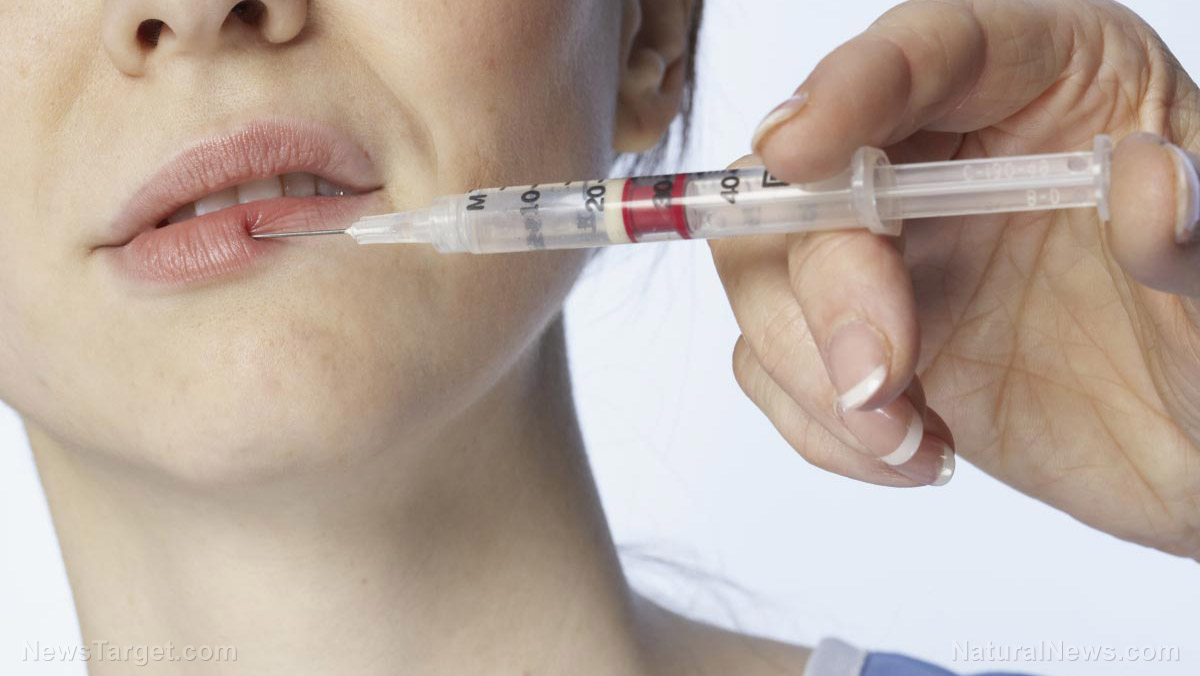BOTOX injections found to actually NUMB your mind and stifle emotions
06/13/2018 / By Vicki Batts

Botox injections are all the rage these days; the pressure to remain “forever young” has only been heightened by the rise of social media – and people are getting age-defying procedures done at younger and younger ages. While you may think of Botox as being for those of us approaching middle age, doctors are now pushing something called “preventative Botox” on young twenty- and thirty-somethings, all in the name of preventing those pesky wrinkles. Scare tactics from experts include suggesting that the earlier millennials start treating their non-existent wrinkles, the “better” their “results” will be long-term. But new research has shown that your face isn’t the only thing numbed by Botox injections – it can have a lasting impact on your cognitive abilities and emotional state.
While many people will undoubtedly still continue to get Botox injections in spite of the risks, the question remains: Is it really worth it?
Is Botox altering your mind along with your face?
Botox is clearly designed to change your face – and as such, many people are aware that the injections can have adverse effects on their skin. The “frozen face” effect is probably what people seeking Botox worry about most, but it turns out your skin isn’t the only organ that can experience consequences from the popular neuromodulator.
As Green Med Info reports, multiple studies have shown that the effects of Botox can be systemic, reaching far beyond the face’s musculoskeletal and nervous systems.
Founder Sayer Ji explains that when Botox injections numb your facial nerves, it can drastically alter the way the brain responds to emotional stimuli, along with certain cognitive features. Even the processing and understanding of language itself can be fundamentally changed.
“In other words, the damage done by Botox injections directly and perhaps profoundly affects and alters human consciousness,” Ji contends.
Multiple studies have pointed to the far-reaching (and undesirable) effects of injecting Botulinum toxin into your face. In 2015, a study from the University of Queensland found that Botox was capable of traveling deep into the central nervous system. At the time, UQ Queensland Brain Institute laboratory leader Professor Frederic Meunier commented, “The discovery that some of the injected toxin can travel through our nerves is worrying, considering the extreme potency of the toxin.”
But that’s not all: Multiple studies have shown that Botox can impair emotional processing, an effect largely correlated with the injections’ effects on facial nerves and restriction of facial expression. A 2016 study found that Botox users rated “slightly emotional” sentences and facial expressions as being “less emotional” after treatment. The researchers also found that Botox users became slower at categorizing emotional facial expressions while under time constraints.
Through the disruption of facial feedback, Botox injections appear to be changing your consciousness. As Sayer Ji posits, “The most likely explanation is based on the facial feedback hypothesis which states that skeletal muscle feedback from facial expression plays a causal role in regulating emotional experience and behavior.”
Fortunately, there are more natural ways to age gracefully.
Natural solutions for maintaining youth
While conventional methods for keeping the tell-tale signs of aging at bay include harsh treatments like plastic surgery and injectables like Botox, the truth is that there are many more natural solutions for keeping that youthful glow alive – and they are far less invasive.
One of the best things you can do for your body is eat a healthy, nutrient-rich diet. There is a wide variety of foods you can include in your diet to help support healthy skin, and a healthy body. Health, after all, comes from the inside out; why would aging really be that much different?
Astaxanthin, a potent antioxidant found in algae, has recently proven itself to be a powerful anti-aging agent. Studies suggest that these benefits are attributable to the nutrient’s ability to ward off oxidative stress.
Learn more about healthy aging at Longevity.news.
Sources include:
Tagged Under: anti-aging, Botox, Botulinum, brain health, cognitive function, consciousness, emotional state, Emotions, face, harmful medicine, health risks, mental health, mind body science, mind-altering substances, skin care, toxins, vanity
RECENT NEWS & ARTICLES
COPYRIGHT © 2017 BRAIN NEWS


















